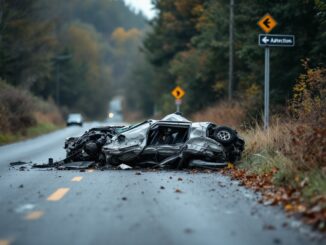Exploring how non-technical skills can enhance safety and performance across industries

Topics covered
In today’s fast-paced and high-risk industries, the importance of non-technical skills cannot be overstated. These skills, which encompass communication, teamwork, decision-making, and situational awareness, play a pivotal role in ensuring safety and efficiency in environments where the stakes are incredibly high.
Professor Rhona Flin, a leading expert in industrial psychology, has dedicated her career to researching how these skills can make the difference between life and death in various sectors, from healthcare to aviation.
The foundation of safety: Non-technical skills
Non-technical skills are often overlooked in favor of technical expertise, yet they are essential for effective performance in safety-critical roles. Rhona Flin emphasizes that these skills are not just innate abilities but can be developed and refined through training and awareness. For instance, in the aviation industry, the NOTECHS system was established to evaluate pilots’ non-technical skills, focusing on teamwork and communication. This system has proven invaluable in preventing accidents and enhancing overall safety.
Lessons from disasters: The Piper Alpha case study
The Piper Alpha disaster serves as a stark reminder of the consequences of poor non-technical skills. The Cullen Inquiry revealed significant failures in communication and decision-making among offshore installation managers during the crisis. Rhona Flin’s research into this incident highlighted the need for better training and assessment of non-technical skills in high-risk environments. By learning from past mistakes, industries can implement strategies to improve safety and prevent future tragedies.
Applying psychology to diverse fields
Rhona’s work extends beyond aviation and oil platforms; it encompasses various sectors, including healthcare and wildlife conservation. For example, her research has influenced training programs for surgeons, emphasizing the importance of non-technical skills in operating theatres. Similarly, her collaboration with veterinarians in Africa demonstrates how these skills can aid in the relocation of endangered species, showcasing the universal applicability of her findings.
Creating a culture of safety through communication
Effective communication is a cornerstone of non-technical skills. Rhona Flin advocates for a culture where team members feel empowered to speak up and share their concerns. In aviation, this has led to a shift in how crew members interact, with a focus on reducing the authority gradient. Such changes foster an environment where everyone can contribute to safety, ultimately enhancing performance and reducing the likelihood of errors.
Conclusion: The future of non-technical skills in safety
As industries evolve and technology advances, the role of non-technical skills will become increasingly vital. With the integration of automation and robotics in various fields, understanding how to work alongside these technologies will require new skill sets. Rhona Flin’s research highlights the need for ongoing training and adaptation to ensure that human behavior remains a critical component of safety in high-stakes environments. By prioritizing non-technical skills, organizations can create safer workplaces and improve outcomes across the board.




